In the afternoon of 4 November, the international conference of Camillian religious who are chaplains in hospitals began in Rome at the generalate house of the Brothers of Christian Schools. As Father Aris Miranda, the member of the General Consulta of the Order responsible for ministry, explained in his introduction to the meeting, its goal was to redesign the role of chaplains in the societies to which we belong and in the cultures that have developed in them (one thing, for example, is Europe and the whole of the West, another is the countries of the Far East, Africa or Latin America).
‘As Camillian chaplains’, said Father Miranda, ‘we are called to bear witness to the transfigured face of Christ with the sick and the suffering. We ourselves are called to a transfigured existence, incarnating in our situations, which differ from place to place, the charism that the Lord has placed in our hands’.
This is not a matter of privileging the ministry of the chaplain above other ministries, Father Miranda then made clear, but, rather, of understanding, with mutual help, ‘speaking about our experiences, listening to each other, and speaking about ourselves, that our ministry today should meet the real needs of those who are suffer’.
For Camillians, this is a matter, in a certain sense, of revisiting this specific ministry (let us remember that these religious take a ‘fourth vow’ to be at the side of sick people even at the risk to their own lives), of stewarding its centrality in Camillian spirituality, of appreciating it with creativity, and of exploring its essential values.
After the prolusion of Father Aris had been given and the large number of people who were present (about sixty, with many young faces) had been introduced, the deliberations of the meeting continued with a paper by Father Frank Monks which had the demanding title: ‘The Prophetic Dimension of the Charism in the World of Health’.
This paper by Fr. Monks was a dense and weighty paper: dense because of the calls it made and weighty because of the evidence which, as could be understood, underlay the observations of the speaker, above all if we think that today religious live and work in a world that is very secularised.
Fr. Monks began his paper in a provocative way by stating that nobody can teach a chaplain how to carry out his ministry and that theory cannot prevail over practice.
One of the first challenges posed to a chaplain today is that of the different cultures and social systems in which he exercises his ministry. We have to be prophetic, that is to say we have to speak for the Lord in the contexts we find ourselves in. One should never forget that the ministry of a chaplain must always have strong dimension of evangelisation.
Another great contemporary challenge lies in the difficulty of ‘telling’ faith today. It has been said that ‘faith is now a foreign language’ in a world that is highly secularised; thus we have to be prophetic in a world that is undergoing profound change and engage in dialogue with realities which are even hostile.
Secularisation, whatever the case, appears not to have brought total ignorance of religious things: it asks for its own autonomy, but it does not necessarily reject a Christian message or discipleship.
There are various ways by which a Christian can address secularisation: either with absolute hostility or, after a certain fashion, by adapting himself through an acritical acceptance of its proposals and languages. Faced with these cultural and social phenomena, we have to behave like the apostle Paul did with the Athenians – becoming aware not only of their scepticism but also of their thirst for spirituality.
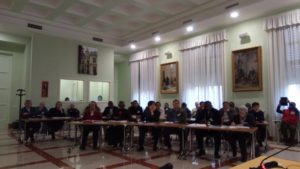 One of the gravest problems – which thus pose challenges – we have to face today is an incapacity to see and give a meaning to our lives. And in this we can truly be the ‘voice of God’
One of the gravest problems – which thus pose challenges – we have to face today is an incapacity to see and give a meaning to our lives. And in this we can truly be the ‘voice of God’
As Pope Francis argues, we must not be afraid of tenderness, because ‘only tenderness can change the world’. Our baptism qualifies us for evangelisation: to proclaim the ‘good news’ is the distinctive sign of the tenderness and the mercy of the Lord. We are in a difficult situation but with our Founder we must not lose courage. Because we know that on our own we cannot give hope – we need help from outside.
So what does being prophetic today mean? It means speaking (about the Lord) to an audience that perhaps does not want to listen. For this reason, we must use a powerful instrument – the charism that was given by the Spirit to St. Camillus. A charism, as the very word indicates, is a gift, an ‘experience of the Spirit’ that a founder transmits to his disciples. We must use this instrument without forms of nostalgia for a past that can never be repeated. Rather, we must use it with the same ‘revolutionary’ radical approach of our Founder.
The Church needs our charism because it is a gift of the Lord to his people: it is speaking about the impassioned love of Christ for the suffering because this love was at the centre of the life and the preaching of the saviour. For Camillus, for the whole of his life and his ministry, Christ was at the centre; this was a ‘flame’ that always made him burn; which ‘consumed’ him.
We can therefore speak about a Camillian spirituality, at the centre of which is a simple but basic discovery: I am a sinner loved by God. This should be proclaimed with words and with works. We can affirm that Camillian spirituality is the spirituality of the ordinary, of the daily; it is the ‘spirituality of the Incarnation’. It makes us identify the presence of the Lord in history; in the signs of the times. We discover that it is the strong commitment to the poor and to the suffering that sustains us.
Camillian spirituality requires a strong sense of missionary work and cooperation – what is done together is ‘better’. Camillian spirituality is an ‘adult’ spirituality centred on the person, on the individual who should not be confused in the mass, belonging to the mass.
Given these facts, what kind of training, therefore, is needed? One is not dealing with acquiring theoretical competences but, rather, of looking at our own interiority, of becoming aware of our own vulnerability. But this should be done without underestimating spiritual formation which, as Christians and Camillians, we must cultivate. St. Camillus was an excellent example of how Grace worked on the nature of man, giving him the true freedom of children of God. And it is this freedom which makes us prophetic.
To know, to love and to serve are the three verbs that mark out what it is to be a Camillian, as they do the lives of baptised people. St. Camillus was a ‘man of the world’ and became a ‘man of God’ and we, too, can attempt to follow his example.
The paper of Father Monks was followed by work in groups. The participants organised themselves into language groups: three groups for English, one for Italian, one for Spanish and one for French. The groups worked on four questions which can be summarised as follows: if we believe we are called to prophecy; if a typically Camillian approach to illness and sick people exists; what importance does awareness of an original contribution of the Camillian charism to the approach to sick people have; and where can motivations for this ministry be found.
All of the groups responded in the affirmative to the question of whether we feel called to be prophets in our own contexts, albeit with different colourings according to the different cultures of the countries in which we live and work. Everyone gave an answer in the affirmative to the question of whether there was a Camillian approach to illness and to sick people. A special emphasis emerged: the ‘Camillian’ approach is appreciated not only by those who suffer but also by the personnel who come into contact with Camillian chaplains: they, too, recognise its singular features. Being aware of this originality in our approach to suffering makes us act in an original way in our personal lives as well. It is a life shared with sick people that provides the principal, if not the only, motivation, for this ministry.
The day ended with a concelebration of the Eucharist presided over by Msgr.Andrea Manto, the director of the Office for Pastoral Care in Health of the Vicariate of Rome. In his homily, Msgr. Manto emphasised the special character of the Camillian contribution to pastoral care in health.



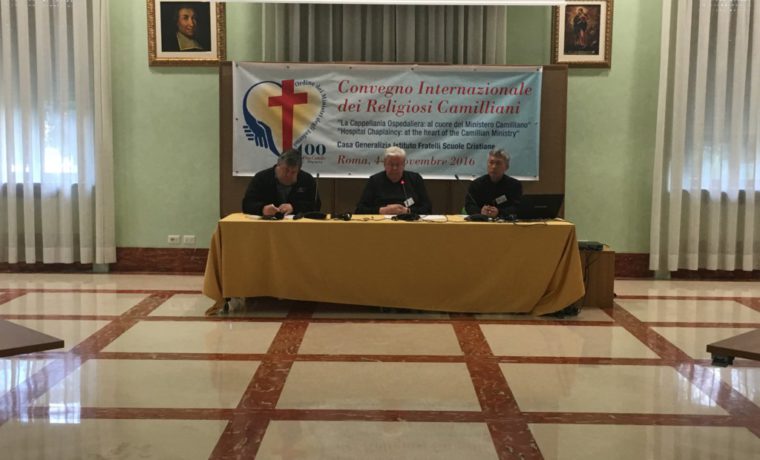
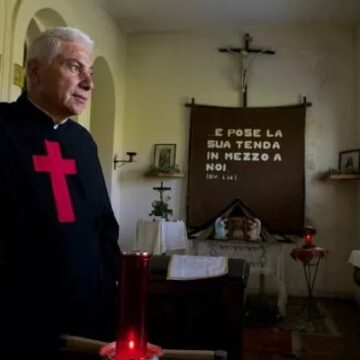

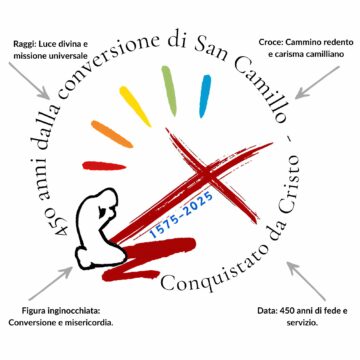


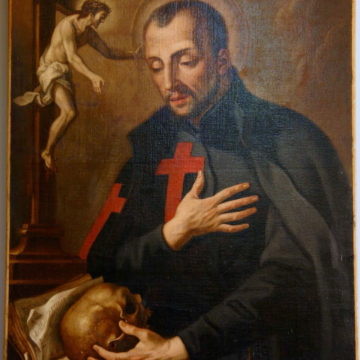


Camillians on Facebook
Camillians on Twitter
Camillians on Instagram